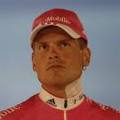Last Friday's news about Lance Armstrong seems to have injected more interest in news about cleaning up the doping mess in cycling.
It's evidence that the UCI and World Anti-Doping Agency are continuing to search for cyclists guilty of using performance-enhancing drugs and won't let past offenses go unpunished.
Here's a quick run-down of some recent developments from the past week, in reverse order:
 Thursday — The Court for Arbitration of Sport found former German cyclist Jan Ullrich guilty of blood doping. All his results from May 1, 2005, until his retirement have been annulled.
Thursday — The Court for Arbitration of Sport found former German cyclist Jan Ullrich guilty of blood doping. All his results from May 1, 2005, until his retirement have been annulled.
The winner of the 1997 Tour de France and longtime Armstrong rival was snared in the Operation Puerto doping probe in Spain. Investigators alleged that Ullrich was a customer of blood-doping doctor Eufemiano Fuentes, and he was suspended by T-Mobile from its team. He never returned to cycling.
CyclingNews.com reports the biggest win that gets voided is Ullrich's 3rd place finish in the 2005 Tour de France.
Wednesday — French authorities searched the home of female French cyclist Jeannie Longo and accused her husband of illegally importing doping materials, specifically EPO, reported the New York Times.
Police detained Patrice Ciprelli after an investigation that started last year when French sports newspaper L'Equipe reported he had purchased EPO from Joe Papp, a former American cyclist who admits he cheated with drugs.
Longo, 53, has been considered one of the greatest female athletes of all time. She has won 13 world championships, and was racing at recently as 2011, when she won the time trial at the French nationals.
She has never tested positive for doping.Monday — The Court for Arbitration of Sport hands down a two-year ban on Spanish cyclist Alberto Contador for doping during the 2010 Tour de France.
Contador was stripped of his 2010 titles at the Tour and Giro d'Italia. (Two earlier Tour victories remain intact.) He's accused of doping after testing positive for clenbuterol use during
a latter stage in the Tour. He maintains the drug must have been a food
additive in beef that he ate.
On Tuesday, Contador said that he'll consider an appeal. The ban is retroactive and will be lifted this August.
 Friday — U.S. Attorney is Los Angeles says he won't prosecute Armstrong for fraud in accusations that he and teammates used sponsorship money from the US Postal Service for doping.
Friday — U.S. Attorney is Los Angeles says he won't prosecute Armstrong for fraud in accusations that he and teammates used sponsorship money from the US Postal Service for doping.
Almost immediately, however, US Anti-Doping Agency head Travis Taggert emphasized:
“USADA’s job is to protect clean sport rather than enforce specific
criminal laws. Our investigation into doping in the sport of cycling is
continuing and we look forward to obtaining the information developed
during the federal investigation.”
Apparently that announcement from the USADA went unnoticed by many, who thought Armstrong was free and clear. Christine Brennan at USA Today clears up the misconceptions.

Recent Comments